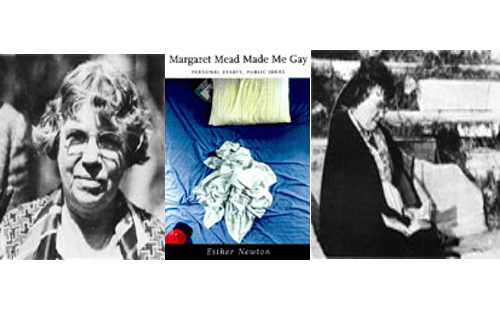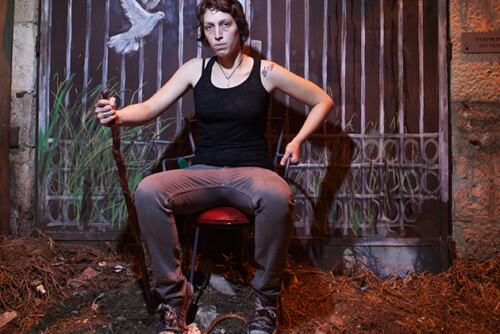This issue of The Scholar and Feminist Online was originally conceived under the leadership of Tami Navarro, former Associate Director of BCRW, and Elizabeth Castelli, former Director of BCRW, as a book salon for Dána-Ain Davis’s Reproductive Injustice: Racism, Pregnancy, and Premature Birth (New York University Press, 2019). The event was scheduled for March 24, 2020, days after the COVID shut down in New York City. Despite having to postpone the salon, the BCRW team remained committed to bringing the critical questions raised in Reproductive Injustice to a wider audience. The key issues were pressing in the moment and in many ways have intensified. As Davis’s book was hitting the bookstores, research on and practices of Black women’s maternal care—including the high-profile cases of Beyoncé and Serena Williams—were garnering unprecedented public attention. Meanwhile, political attacks on reproductive justice ramped up, culminating in 2022 in the Supreme Court’s Dobbs v. Jackson decision that overturned the legal right to abortion. When Janet Jakobsen and I became co-directors of BCRW in 2022, we inherited this issue, and while we are very happy to usher the issue to publication and I am honored to write the introduction, I cannot take credit for shaping its vision. This special issue of S&F Online reflects on the importance of Davis’s book, contributes to the growing body of scholarship about Black birthing people’s experiences with what Davis terms “obstetric racism,” and intervenes in conversations about reproductive justice.
Reproductive justice, as women of color and LGBTQ activists and scholars have demonstrated for decades, includes not just access to abortion and contraception but freedom from coerced sterilization, the right to have and raise children, the right to bodily sexual autonomy, and the financial resources to materialize one’s values and commitments with regard to reproduction.1 Arguments about reproduction often revolve around legal, political, and health metrics or empirical evidence of inequity. How accessible is health care and health insurance coverage? What percentage of newborns are admitted to the neonatal intensive care unit? What is the meaning of individual rights? The authors in this special issue ask a different set of questions and foreground an alternative body of knowledge not only about what we know about Black women’s maternal health but how we know it. By engaging in multiple methodologies and entry points for considering Black women’s health, they offer a different register. As Davis builds her analysis on oral history and feminist ethnography to construct a new narrative of Black women’s maternal health, the contributors to this issue center the practice and voices of Black women represented in personal narrative, images, artwork, and performance. This approach to knowledge production has roots in Black women’s history and an African diasporic tradition.
Shifting our attention to the voices of Black women destabilizes what we know about reproduction and foregrounds new ways of thinking about Black women’s and infant’s health through narrative, storytelling, and practice. Narrative and storytelling are powerful modes of social change in part because they construct collective understandings and build relationships. As Stéphanie Etienne says in an interview with Miriam Neptune: “The work of storytelling and centering the experiences of Black women helps to break down that isolation and create a space where people understand that their experience is part of a larger system of injustice that’s impacting not just them but other people who look like them.”2 Alongside traditional approaches to storytelling, Frances Howell argues for the usefulness of other methods of knowledge production as well. For example, the traditional African practice of quilting, what Howell calls a “feminist arts-based methodology,” can craft new narratives of Black people’s birthing stories both in an alternative visual representation and in the practice of sharing stories.
The authors in this issue insist that neither medical practice nor Black women’s reproduction can be extricated from white supremacy, patriarchy, eugenics, and the history of slavery. Analyses of reproductive justice often focus on ruptures and shifts, but this issue traces continuities and hauntings, in the tradition of what Saidiya Hartman calls the “afterlife of slavery.”3 Conceptually, the issue begins from the premise that the injustices of reproduction sit on and are derived from a foundation of centuries of slavery and institutionalized racism. Many of the contributors draw on the work of Deidre Cooper-Owens, who has written about pioneering nineteenth century gynecologists who experimented on enslaved Black women on the assumption that they could not feel pain. These ideas and practices served as the very core of evolving obstetric and gynecological practice.4
This tortured history manifests in the bodily pain and violations Black women experience today. Cara Page, a contributor to this issue and former BCRW Activist-in-Residence, calls this the generational trauma of the “mismeasured and unfit,” the “poking, prodding, and painful extraction of medical racism” that makes visible the embodiment of Black women’s pain.5 By naming this pain and these experiences “obstetric racism,” Davis offers an important analytical intervention that highlights these institutionalized patterns in perinatal maternal health. The problem, then, is not simply racial inequality or differential racial outcomes but something more foundational: structural racism.
Beyond the haunting continuities in Black people’s reproductive experience, contributors also trace continuities of recovery and reclamation through scholarly, health, and cultural practices. Each of the essays asks how an alternative body of knowledge and new narratives can be utilized for healing and change. Dismantling unjust medical practices and constructing a new model of reproductive justice starts with reflecting on the past, naming the pain, and understanding how the system came to be. In this vein, Nessette Falu calls Davis’s book a “Golden Seed of Reproductive Justice.” The circuits traveled by the book offer an example of how academic knowledge can shape practice and vice versa. As Virginia Dominguez’s interview with Davis demonstrates, Davis’s personal and professional trajectory as an anthropologist, a single mother, a grandmother, and a practicing doula has informed her academic work. She encountered obstetric racism through her own lived experience but also learned about it in the Black feminist communities in which she is embedded. Her theorizations are inextricable from the ways medical racism plays out in Black women’s lives and how Black women have forged alternative practices, as Davis explains in a conversation with Sarah Haley in BCRW’s 2022 McIntyre Lecture, also included in this issue. Ugo F. Edu’s essay “Neither Happy Endings nor Ceaseless Misery: Pedagogical Reflections” builds on Davis’s models of Black feminist scholarship and practice, focusing on their work in the classroom. They ask how we can teach and study the history of medical racism and move forward, particularly as Black and brown people who continue to experience institutional racism. How can we marshal what we know and, rather than being buried under the enormity of the pain, turn knowledge into healthy pedagogical practice?
Contributors also focused on advocacy, self-determination, and collective power as a pathway to reclamation and recovery in medical practice. The proliferation of alternative medical practices such as doula training programs and radical birthing centers led by Black women has transformed what is possible for individuals and generated a reproductive justice that is communal and empowering to birthing people. A Black-centered perinatal practice develops alternative ways of understanding Black birthing and disrupts ingrained and harmful medical practices. Tanay Harris and Stéphanie Etienne, co-founders of Bloom, a collective of community-based birthing healthcare providers in Baltimore, spoke about their work in an interview with Miriam Neptune. Harris explained that the goal is to provide not just pre- and postnatal care but to take a holistic approach to people seeking services, considering the need for housing, food, education, and other necessary support.
In an interview Mama Hakima Payne, midwife, doula, and co-founder of Uzazi Village, a community-based infant and maternal healthcare center for Black and brown communities in Kansas City, Missouri, describes a similarly holistic focus. Mama Payne discusses how her prior experience, practice, advocacy, and community connections led her to see the need for a village, a safe and loving wraparound space for Black birthing people. She also discusses the specificity of a model that centers Black birthing people as the experts of their own lives and bodies and what that means for the array of services offered, the nuances of their practices, and the interplay between services and local, state, and federal politics.
In her personal and professional life, Davis has had a longstanding relationship with Uzazi, which means birth in Swahili, and it was through Uzazi that Devika Maulik, a perinatologist and contributor to this issue, encountered Reproductive Injustice. In her essay, Maulik explains that Reproductive Injustice equipped her with the history and language to question fundamental clinical paradigms and she describes how this translates into her practice. She has learned to relinquish traditional approaches to data and take a holistic approach by elevating the voices of Black families and letting that change how she practices medicine. The relationships that have been built and circuits of knowledge that have passed among Reproductive Injustice, Uzazi Village, Davis, Mama Payne, and Maulik offer but one manifestation of the mutually generative exchange between community, academic, and medical practices.
Finally, contributors find recovery and reclamation in cultural practices, including the relational arts of storytelling and quilting, as described above, as well as more directly representational art and performance. These works offer other ways to understand how racism becomes embodied and how Black birthing people’s voices can create powerful possibilities for recuperation. Cara Page’s “Psalm for the Mismeasured and Unfit” offers a performative interpretation of racialized medical violence and Black women’s reclamation and healing. Kelly Marshall’s incredible photographs called “Founding Mothers,” part of the feature-length documentary Birthing of a Nation, speak to the crucial role of Black women in US history and the practices of radical self-care, healing, and reclamation that emerged from that space of violence and trauma. In a powerful call for change, Falu explores the reproductive justice resonances in two paintings to honor Davis’s work, uplift Black women’s collective work, and pay tribute to Oshun, an African goddess of fertility and reproduction. By reclaiming Black women’s interpretative and spiritual voice, Falu shifts the power away from the medical industry toward a new vital source with the power to give life, fertility, and health to Black birthing people.
This issue’s artistic pieces together with its interviews, analyses, and stories of Black women model ways to dissect the infrastructure of racism that underpins the medical system and, at the same time, reimagine and reclaim birthing and reproduction.
WORKS CITED
Cooper-Owens, Deirdre. Medical Bondage: Race, Gender, and the Origins of American Gynecology. Athens: University of Georgia Press, 2017.
Davis, Dána-Ain. Reproductive Injustice: Racism, Pregnancy, and Premature Birth. New York: New York University Press, 2019.
Hartman, Saidiya. Lose Your Mother: A Journey Along the Atlantic Slavery Route. New York: Farrar, Straus, and Giroux, 2006.
Neptune, Miriam. “Enacting Birth Justice Through Everyday Practice: A Conversation with Radical Birth Workers Stéphanie Etienne and Tanay Harris.” The Scholar and Feminist Online 19.2 (Fall 2023): https://sfonline.barnard.edu/enacting-birth-justice-through-everyday-practice-a-conversation-with-radical-birth-workers-stephanie-etienne-and-tanay-harris/.
Page, Cara, dir. Psalm for the Mismeasured and Unfit. Scholar and Feminist Conference, Barnard Center for Research on Women, Barnard College, New York, NY. Recorded February 17, 2018. https://www.youtube.com/watch?v=xWpSSwlX8wc.
Roberts, Dorothy. Killing the Black Body: Race, Reproduction and the Meaning of Liberty. New York: Random House, 1997.
Silliman, Jael, Marlene Gerber Fried, Loretta Ross, and Elena R. Gutiérrez, eds. Undivided Rights: Women of Color Organize for Reproductive Justice. Cambridge: South End Press, 2004.
- Undivided Rights: Women of Color Organize for Reproductive Justice, ed. By Jael Silliman, Marlene Gerber Fried, Loretta Ross, and Elena R. Gutiérrez. Cambridge: South End Press, 2004. Dorothy Roberts, Killing the Black Body: Race, Reproduction and the Meaning of Liberty. New York: Random House, 1997. [↩]
- Miriam Neptune, “Enacting Birth Justice Through Everyday Practice: A Conversation with Radical Birth Workers Stéphanie Etienne and Tanay Harris,” The Scholar and Feminist Online 19.2 (Fall 2023): https://sfonline.barnard.edu/enacting-birth-justice-through-everyday-practice-a-conversation-with-radical-birth-workers-stephanie-etienne-and-tanay-harris/. [↩]
- Saidiya Hartman, Lose Your Mother: A Journey Along the Atlantic Slavery Route, New York: Farrar, Straus, and Giroux, 2006. [↩]
- Deirdre Cooper-Owens, Medical Bondage: Race, Gender, and the Origins of American Gynecology. Athens: University of Georgia Press, 2017. [↩]
- Psalm for the Mismeasured and Unfit, dir. Cara Page, Scholar and Feminist Conference, Barnard Center for Research on Women, Barnard College, New York, NY, recorded February 17, 2018, https://www.youtube.com/watch?v=xWpSSwlX8wc. [↩]




